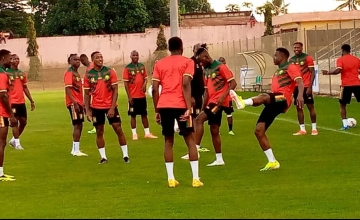
Ngoh x-rayed the bill, bringing to the fore its shortcomings and suggested how best Government could correct same in a bid to give meaning to the much talked about Special Status for Anglophones. He wrote:-
“Should it become law, it shall apply to all public national, regional and local institutions and authorities (Section 3); and, it shall also encourage the use of English and French in private entities and by private authorities (Section 4).
“While the move is laudable, the crafters of the Bill, the government, the Members of the House of Assembly and Senate must put the interest of the nation above personal interest and that of their respective political parties; the national interest and the survival of the nation must supersede ‘party discipline’ and ‘party obligation.’
“The CPDM Members of the House and Senate should not use the advantage that the ruling CPDM party has a crushing majority in both Houses to ram through the Bill; it will be difficult and bitter for Cameroonians of good faith to swallow it hook, line and sinker.
“While the raison d’être of the Bill cannot be questioned, the new and evolving socio-political landscape in Cameroon since October/November 2016 must be borne in mind and Cameroonians must understand that Cameroon can no longer be as it was before 2016. Cameroonians, and especially Anglophones, can no longer be taken for “a joy ride” as Dr. EML Endeley once stated at the UN in a different context and circumstance in 1959; but the substance and impact of the statement is still the same.
“Although the government has coated the Bill with a layer of sugar, as evidenced in Sections 12 and 18 of the Bill, to make it palliative to Cameroonians, the bone of contention with regard to it is contained in Section 26: (1) and (2). The contents (“meat”) of the Special Status for the North West and South West Regions have not yet been made public and Cameroonians are told that experts are burning the midnight candle working on it.
“If Section 26:(1) and (2) of the Bill is anything to go by, Cameroonians and especially Anglophones should be offered the opportunity to tell their elected representatives what they feel with regard to the attributes of the Special Status. Section 26:(1) and (2) of the Bill states:
“Section 26:(1) Either English or French shall be used before ordinary law and special courts. (2) Court decisions shall be rendered in either of the official languages.
“Section 26:(l)and (2) fails to take cognizance of the historic specificities of the peoples of the North West and South West Regions to whom the Special Status has been given. In order for the crafters and the government to assure Cameroonians and especially Anglophones that they are sincere in the interest of this Our Fatherland, Section 26: (1) and (2)should, as a proposal’, specifically and clearly, without any ambiguity, state, in general terms, as follows:
“Section 26: (1) English shall be used before ordinary law and special courts in the Special Status Regions of the North West and South West.
(2)Court decisions in the Special Status Regions of the North West and South West shall be rendered in English. However, Court decisions may also be rendered in French in the Special Status Regions of the North West and South West.
“If Section 26:( 1 ) is not modified or amended as proposed or some modification or amendment similar to it, legal practitioners (judges, magistrates, barristers, court registrars, court clerks, etc.) will be legally and constitutionally right to use, French, if they want to, before ordinary law and special courts in the Special Status Regions of the North West and South West. This also applies to Section 26: (2) because those responsible for rendering court decisions in the Special Status Regions of the North West and South West can decide to render them only in French and successfully argue that they are within the law as per Section 26:(2):i they will therefore be protected by the law.
“If the Bill is promulgated into law with Section 26:(1) and (2) as it is, then the government and the Members of the House and Senate will, intentionally, be preparing the stage for another crisis down the road. There is the frightening temptation to believe that the government is putting the cart before the horse; that is, drafting and presenting bills for deliberation in the House and Senate without the prior presentation, deliberation and adoption of appropriate articles/sections or amended articles/sections of the constitution providing for the articles/sections assigning the powers, subjects, attributes, domains or competences exclusively reserved for the North West and South West Regions as Special Status Regions; those powers, subjects, attributes, domains or competences to be jointly ” administered” or “enjoyed” by the Central government and the Special Status Regions; and, finally, those powers, subjects, attributes, domains or competences exclusively reserved for the Central government.
“This is of crucial importance because all laws, decrees, orders, etc. should and must reflect and emanate from the competences, powers domains or subjects of the Special Status as clearly defined ant enshrined in the constitution. Unless and until, this is done, it will be fool hardy and very difficult to expect Cameroon to come out of the wood’.”














